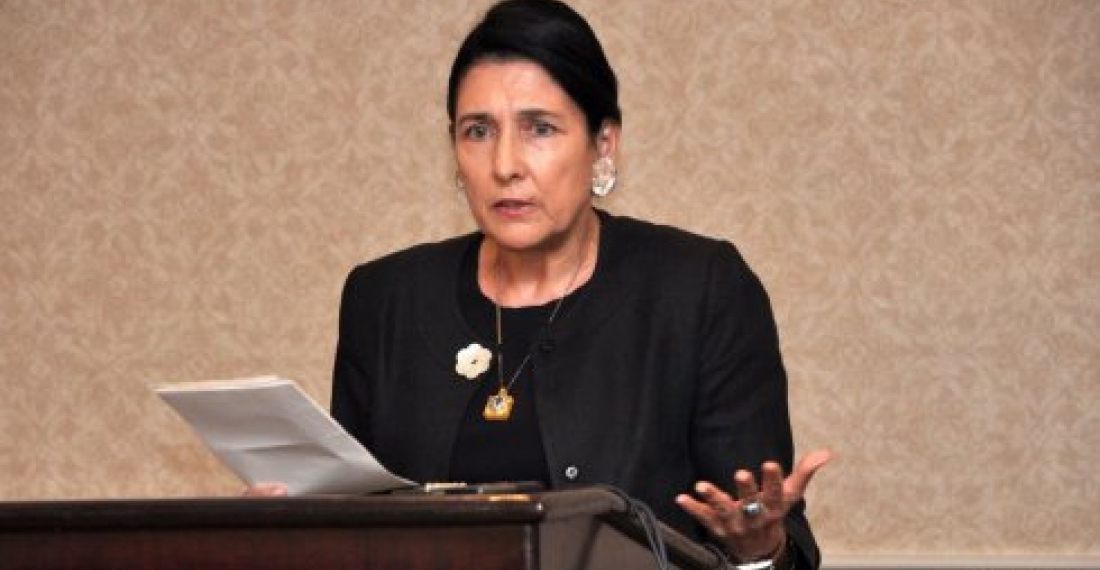Georgia's governing party, Georgian Dream, has called on its supporters to vote for Salome Zurabishvili in next month's presidential election in Georgia. The decision was announced by the Chairman of the Georgian Parliament, Irakli Kobakhidze, shortly after a meeting of the Party's political council held in Tbilisi on Sunday (9 September).
Zurabishvili, who served as the first foreign minister under Mikheil Saakashvili's presidency, broke with his political team soon after and became a fomidable critic. She has recently served as an independent member of parliament. She is not a member of the Georgian Dream party. Announcing the decision to support her candidature, Irakli Kobakhidze said that the Georgian Dream had kept its promise not to support one of its own members for the post of president.
Georgia is going through the motions of voting for a president in October, although the position now no longer carries any significant executive power. Georgia shifted from a presidential to a parliamentary republic in 2012 at the initiative of then president Mikheil Saakashvili, who allegedly wanted to continue ruling, when his two-term presidency expired, in the re-invented post of prime minister. The move misfired since Saakashvili's UNM lost the election. In 2013 the now governing Georgian Dream party nominated one of its ministers Giorgi Marghvelashvili for the presidency. But on assuming power Marghvelashvili broke with the ruling party, resulting in a number of bitter exchanges between him and GD founder and current Chairman Bidhzina Ivanishvili. In recent constitutional changes it was decided that in the future the president will be elected by parliament, as is the case in many countries where the head of state is a symbolic figure. But in a concession to opponents and critics the government agreed that this arrangement will start following the 2018 election - so for the last time Georgians will go to vote for their president in October. Or maybe, some suspect, they will just don't bother.
source: commonspace.eu
photo: Salome Zurabishvili (archive picture)






